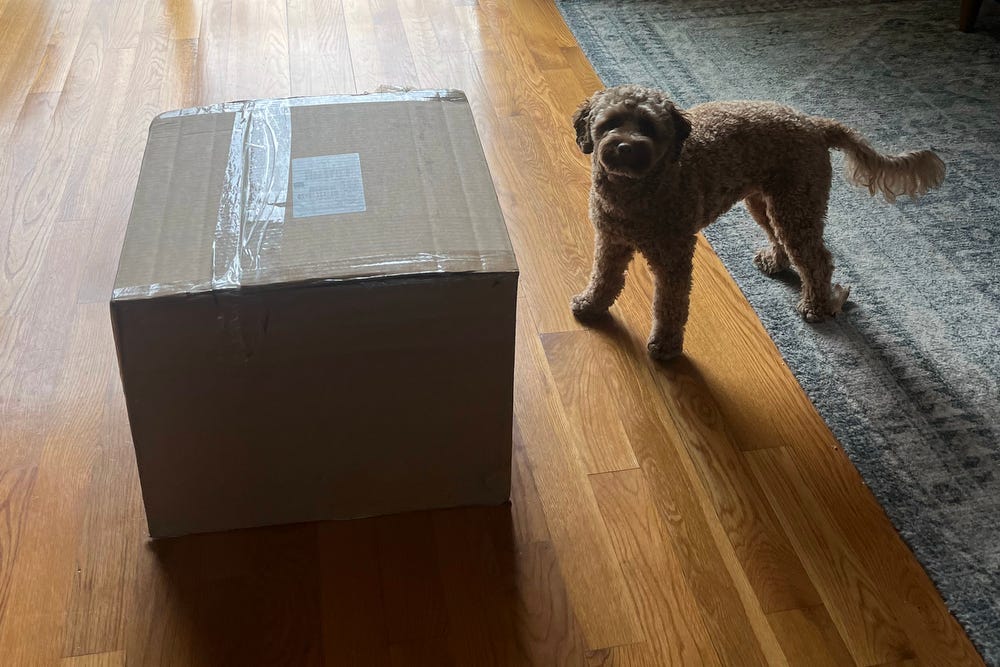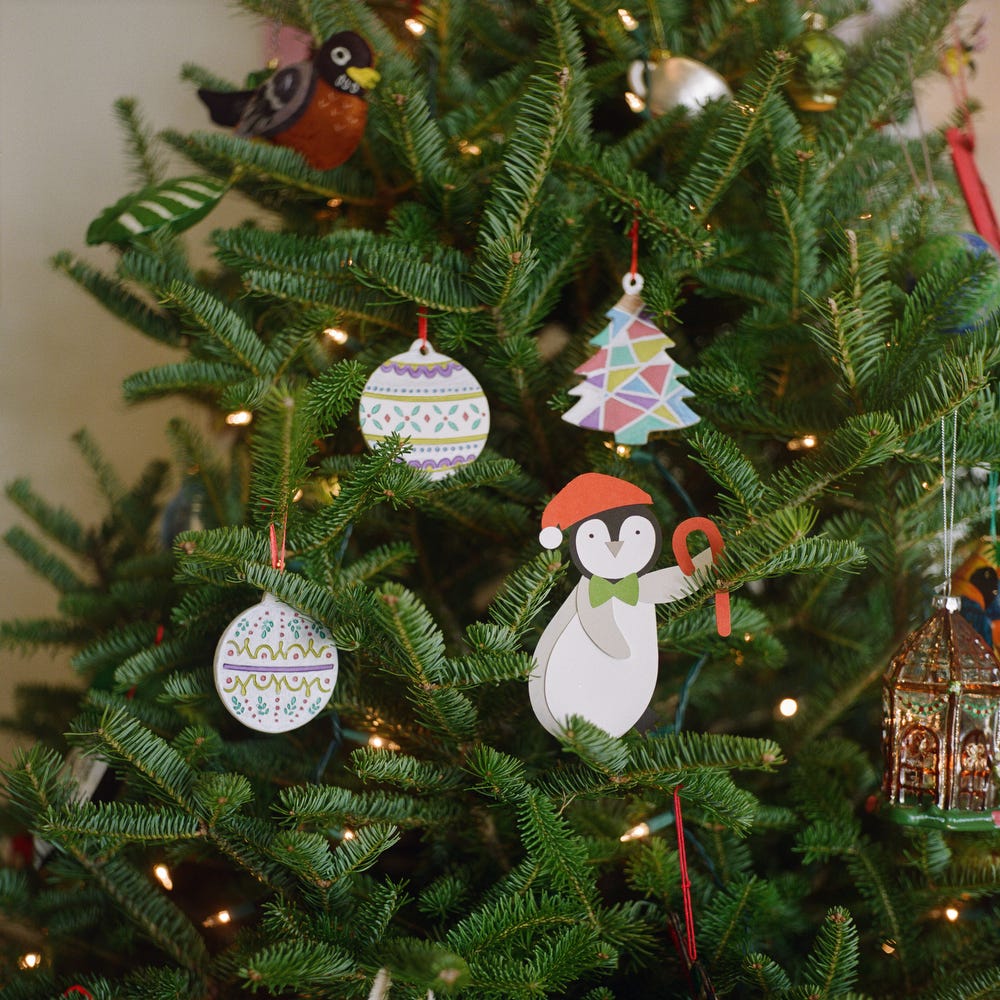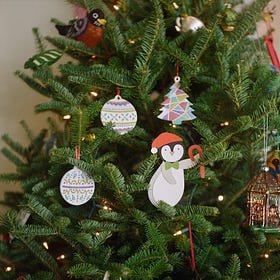A True Life Built is a living photo essay on starting over and building a truer life. It’s for anyone, at any age, who is finding the courage to begin again. Subscribe for free posts.
“I’m here to pick up a package,” I told the bored clerk at the USPS store.
“It’s a big one,” she said. “Did the shipper tell you that you have to pay to pick it up?”
“No,” I said, “but that checks out.”
“Is it from a company?”
“From my ex-husband.”
“Girl,” she said, “I got me one of those.”
“I don’t recommend them,” I said. “Zero stars on Yelp.”
“Mmm, girl, I’ve been divorced for 15, no 20, years and mine still calls me.” We both shook our heads at men and at the package, which was at least twice as large as the bag I’d brought to carry it.
“Girl,” I said.
The package had arrived out of the blue, five years after I walked out of my old life and began to build a truer one. Mine was not a good divorce, if there even is such a thing; I have yet to meet a woman who’s had one. My divorce took three attorneys in two countries and a year of tortured court appearances to drag it over the finish line like a dead body. I’d had zero communication with my ex since he sent my belongings in garbage bags.
In our settlement agreement, I had asked only for my clothes and books and a few sentimental items: my hard drives with a lifetime of photos, three antique carriage clocks from my late grandfather, and twenty years of Christmas ornaments. Growing up, a Christmas tree was the one unshakable tradition in our secular home. My mother collected ornaments to commemorate each year and marked them with the date. Each winter, she carefully unwrapped each one and held it up to the light. When I built my own home, I did the same.
The garbage bags arrived around Christmas. I tore into them, holding up each item and then tossing it aside. Clothes filled the floor like leaves after a storm. But with each emptied bag, my heart sank further. The bottom of the last bag held only cords and pens and paperclips. My precious things were missing.
Had he smashed them in a fit of rage after I left? I couldn’t imagine it, even at the depths of his despair. The man I married was deeply sentimental about photos and family heirlooms. Had he sold them? Unlikely. The clocks were old but not rare. Had he lost them? Not a chance. They lived in my home office alongside everything else that was dumped into black plastic. So why not return them? The divorce negotiations were done and he had nothing left to gain. If they were not lost or smashed or sold, then he had held them back just to cause me pain.
And it worked. After all the wretchedness of the divorce, the garbage bags broke me. I cried for six straight weeks until my therapist gently suggested that I talk to my doctor about medication. I loathed the idea. Implicit in her suggestion was the notion that my sadness was a thing to be targeted by chemicals. If grief is sadness in proportion to circumstance, then depression is sadness metastasized, the sorrow invading the normal rhythms of life. But what was the allowed amount of sadness for the end of a marriage like mine? What was a proportional amount of crying?
As I wept my way through winter, my mom sent me one of their carriage clocks, a twin of the one I’d lost, and some of her extra ornaments; her collection had grown so large that she hung the overflow from the dining room chandelier. They arrived in a hail of tiny boxes. A rocking horse my mother had cross-stitched with a heart in its saddle for my first Christmas. A popsicle-stick sled I’d made when I was eight. A blown glass Brussels sprout with green glitter leaves, a food that I liked to cook and that she despised. Little cabbages from hell, she called them, wrinkling her nose.
While my mother refilled my tree, I finally gave into my therapist’s repeated nudging and filled a prescription for Prozac at my neighborhood pharmacy. Gradually the dark cloud of sadness lifted, but the dull pain of deliberate cruelty lingered. How do you forgive someone who has no interest in making amends?
Now, five years later, my ex had sent me another box of belongings with no explanation and no contact. He had simply put a box in the mail one day and passed along a USPS claim ticket through a mutual friend.
“Do we think he’s finally sent back my precious things,” I asked my friends when I got the ticket.
“Absolutely not,” said one.
“It’s probably papers,” said a second.
“Might be anthrax,” said a third. “Want me to open it just in case?”
I lugged the box home from the USPS store and opened it on my living room floor, telling myself not to get my hopes up. It would just be some random stuff I’d long since forgotten. I ripped into the box, my heart beating a little too fast. There, in a blizzard of bubble wrap, were my drives and clocks and ornaments.
He’d had them the whole time.
Stunned, I carefully unwrapped each ornament and lifted it up to see the date on the bottom. Here was the little pair of bean bag reindeer that sat on my childhood mantle. Here was the little red glass phone booth my mother sent when I studied abroad in London. And here, in a silver star frame, was a photo of me and my ex, grinning in a tux and ball gown. I turned it over to see my mother’s careful handwriting: Met Gala, 2007. It was the year before we married. I was 25.
When the shock ebbed, my first reaction was validation. My original instincts had been correct: the cruelty had been real, my crying proportional. My second reaction was bafflement. Why, after so many years, would my ex send these now?
“Perhaps he’s in a better place now,” my partner said. Perhaps. Perhaps the guilt finally got to him, or he ran out of room in his closet, or his new partner served as his better angel, like mine does for me. There was no note or evidence that he was sorry. Still, for his own inscrutable reasons, on his own absurd timeframe, he tried to undo a past wrong. He sent the items knowing that it would confirm what he had done, knowing perhaps that I would write about it, and yet he sent them anyway.
There’s a Buddhist parable about coming across a dog laying in a pile of leaves. The dog looks friendly at first, but then he snarls at you, and you’re angry and afraid. Then the leaves shift, and you see the dog’s leg is caught in a trap. He’s snarling because he’s hurt. Suddenly, you can see the situation with a bit more compassion.
In this way of thinking, forgiveness doesn’t require reconciliation, or even apology. It’s about seeing something for what it is without calling it the enemy. You’re not required to free the dog from his trap, or even to approach him at all, just to understand that we can all lash out when we’re hurting. People are more than the things they’ve done from a place of pain.
When my partner got home from work, I showed him the prodigal ornaments, whose original absence had helped bring us together. There I’d been, with my sadness and my Prozac prescription, and there he was, my neighborhood pharmacist. I never imagined that we’d end up falling in love. How’s that for a plot twist?
I held up the photo of my younger self in the silver star frame, the girl who had spent so many years trying to fix a marriage that couldn’t be mended. “Look at how fantastically young I was,” I said. Then I started to cry.
“You did the best you could at the time,” my partner said, and pulled me into a hug. I guess I did. I guess we both did, even though our best wasn’t nearly good enough. When he released me, I put the clocks and reindeer in their rightful places on the shelf, then popped the photo out of its silver frame and headed toward the trash.
“Don’t you want to keep it?” he asked. He also has a sentimental streak. “When you’re 80, don’t you want to look at it and remember that time at the Met?”
“No, I don’t,” I said, and tossed the photo in the garbage.
Liz is a writer based in Brooklyn. For work, she helps organizations tell stories that matter: lizmstudio.com. For fun (?!), she’s working on a book about starting over in midlife.
Related Essays:
You can always come home
The five words that gave me the courage to make a change. I packed a carry-on, seventeen long years reduced to a single suitcase, and boarded one of the last flights out before the Kenyan borders closed.
Paper penguins
For my 41st birthday, I finally threw the party I wanted. Most of all, I wanted to decorate my Christmas tree, a seven-foot fir that I had carried up four flights of stairs and set up on my own.
What are the odds?
I walked into my local pharmacy to pick up a prescription, sick and grieving my divorce, in sweats and snow boots. Since I was there, I grabbed some tampons and pads—they only had a jumbo pack—and made my way to the counter to pay.







It’s so good to read a story of yours again, Liz! I’ve missed your writing. Of course this one did not disappoint!
LOVE THE END!!! HELL YES LIZ!!! ugh I felt every moment of this !!!